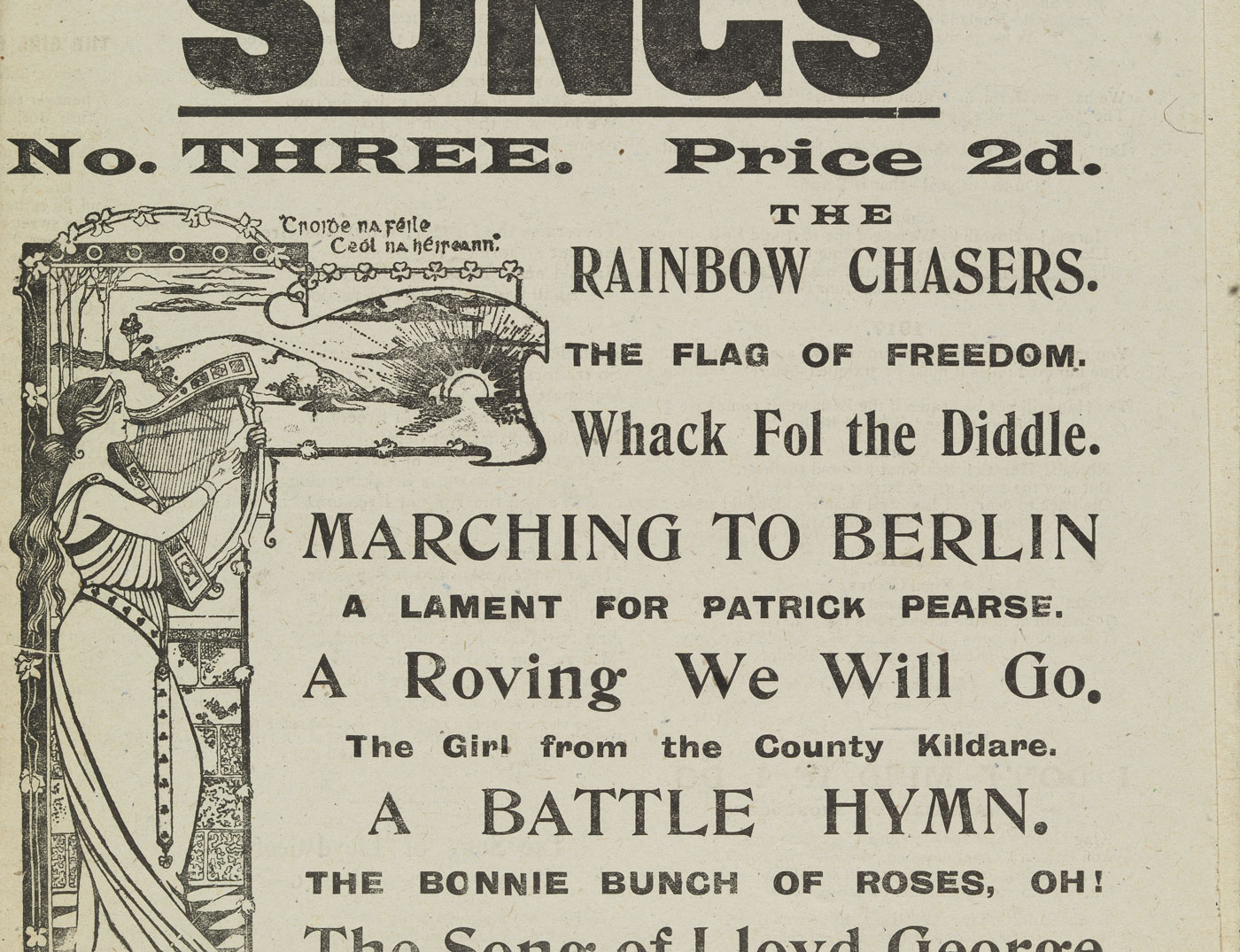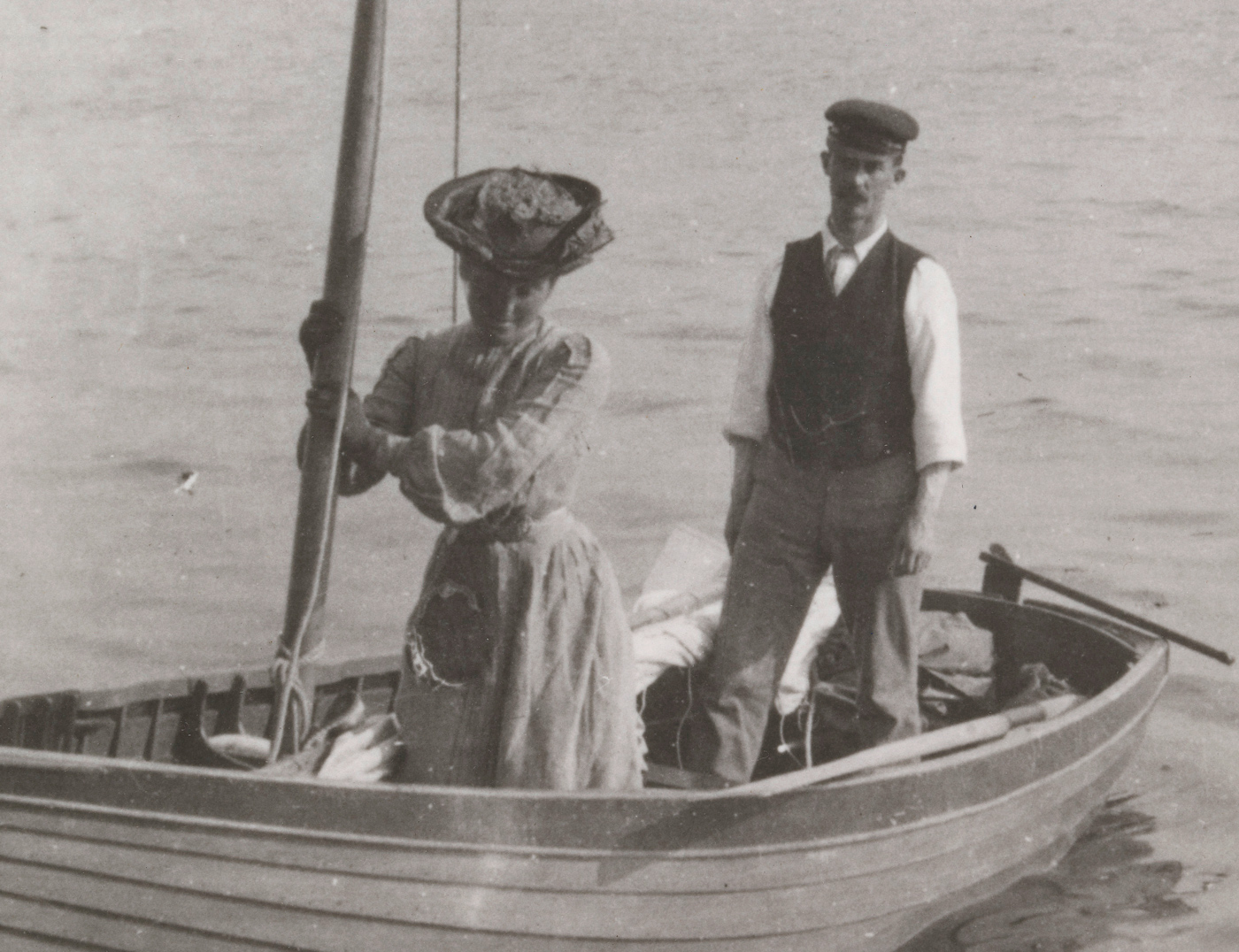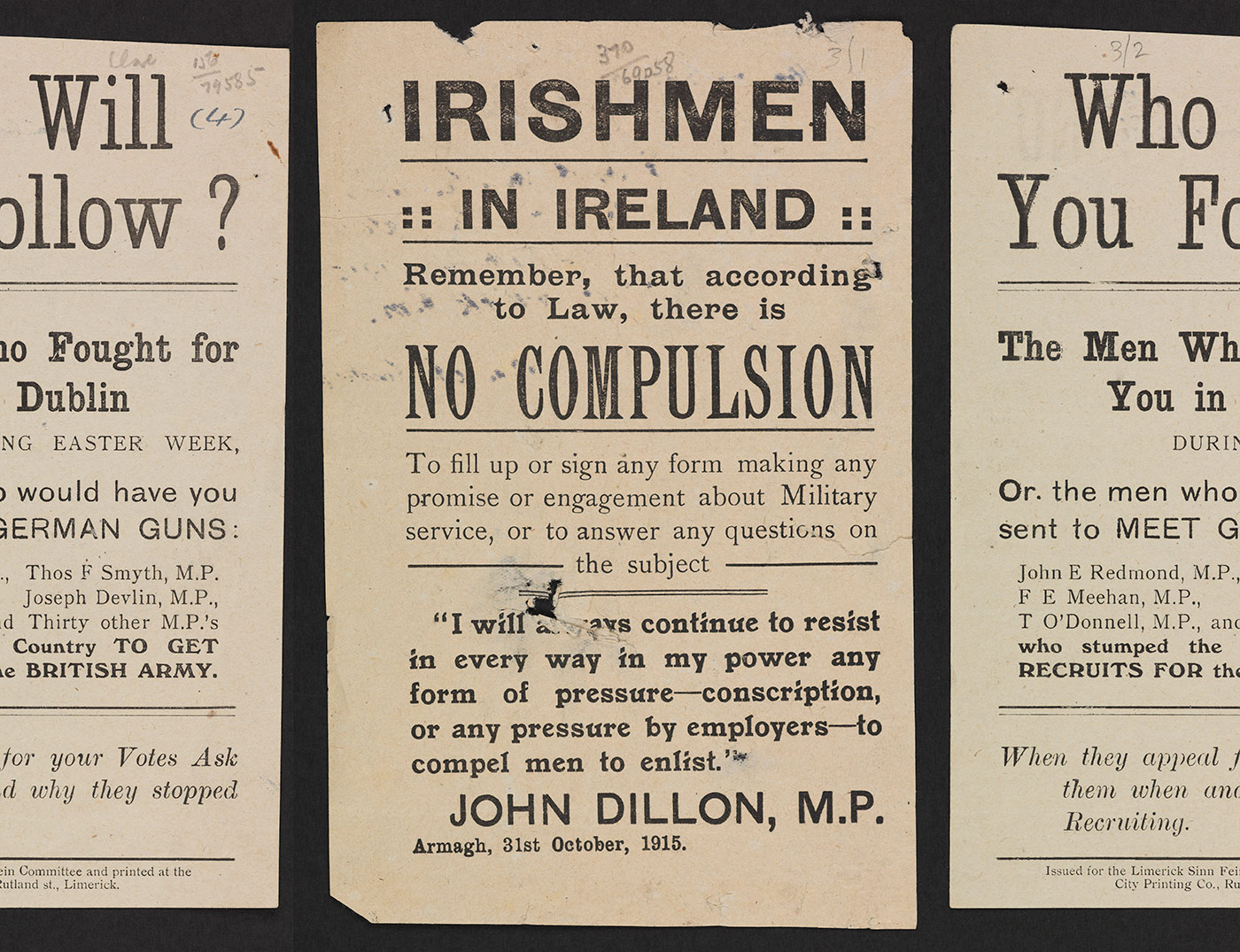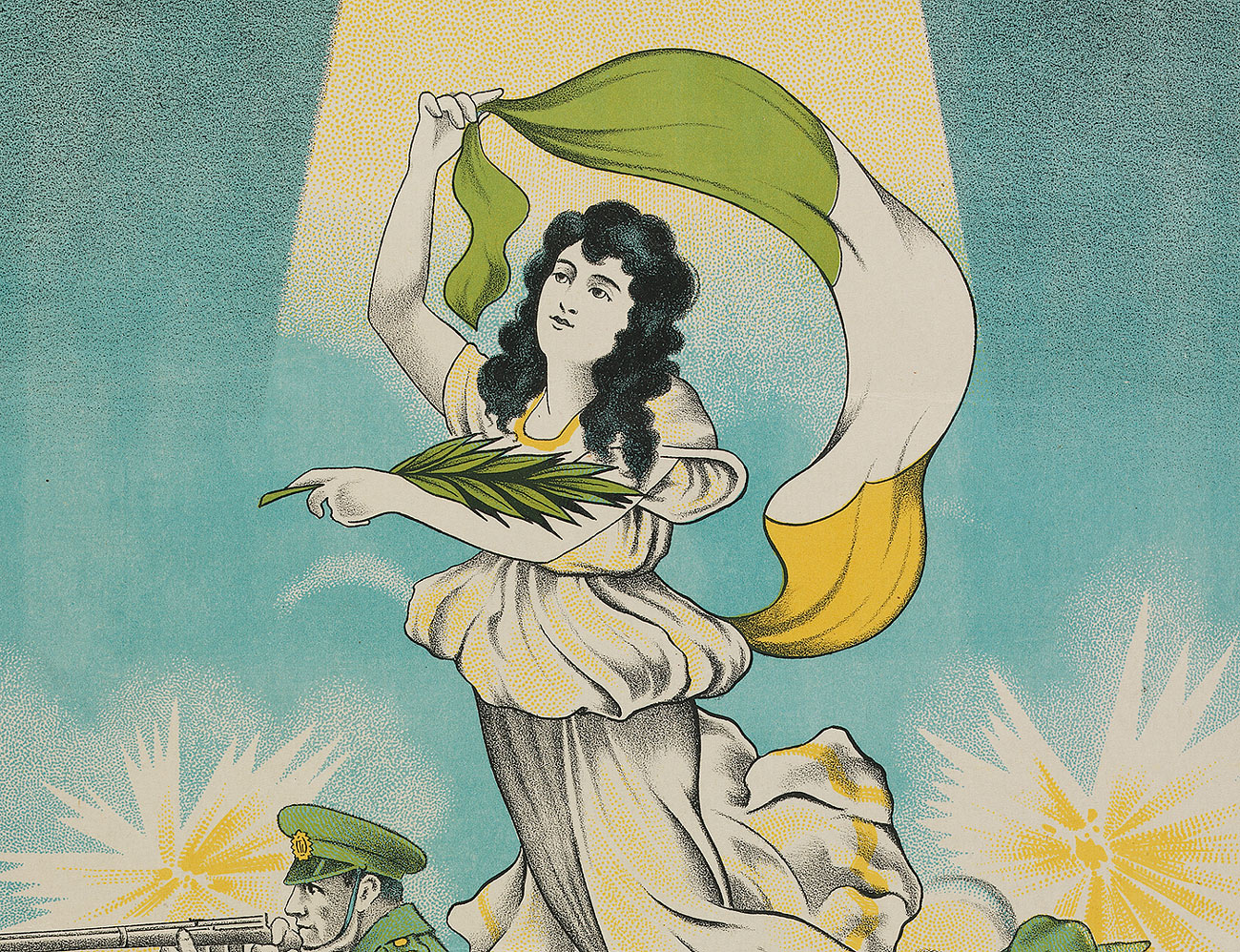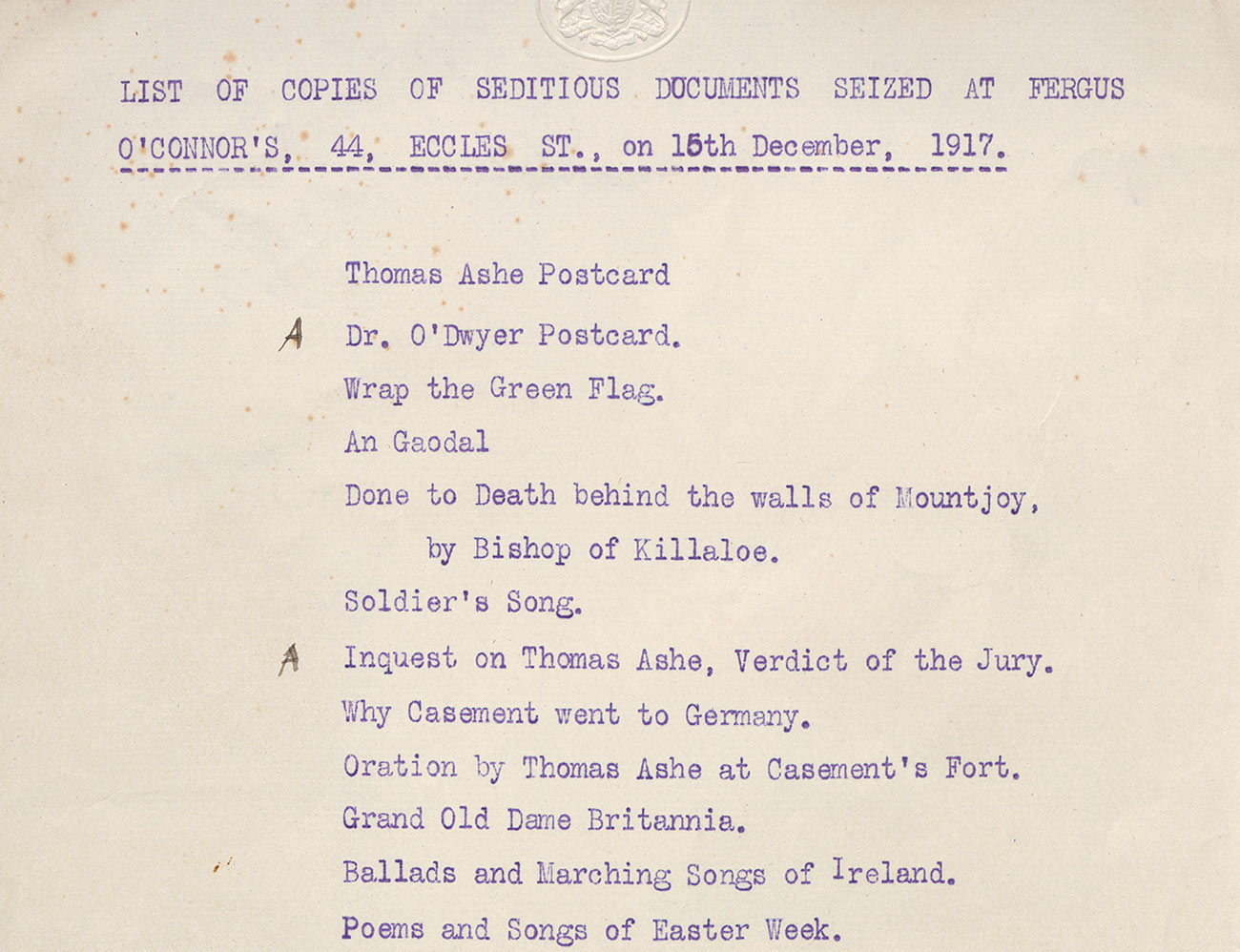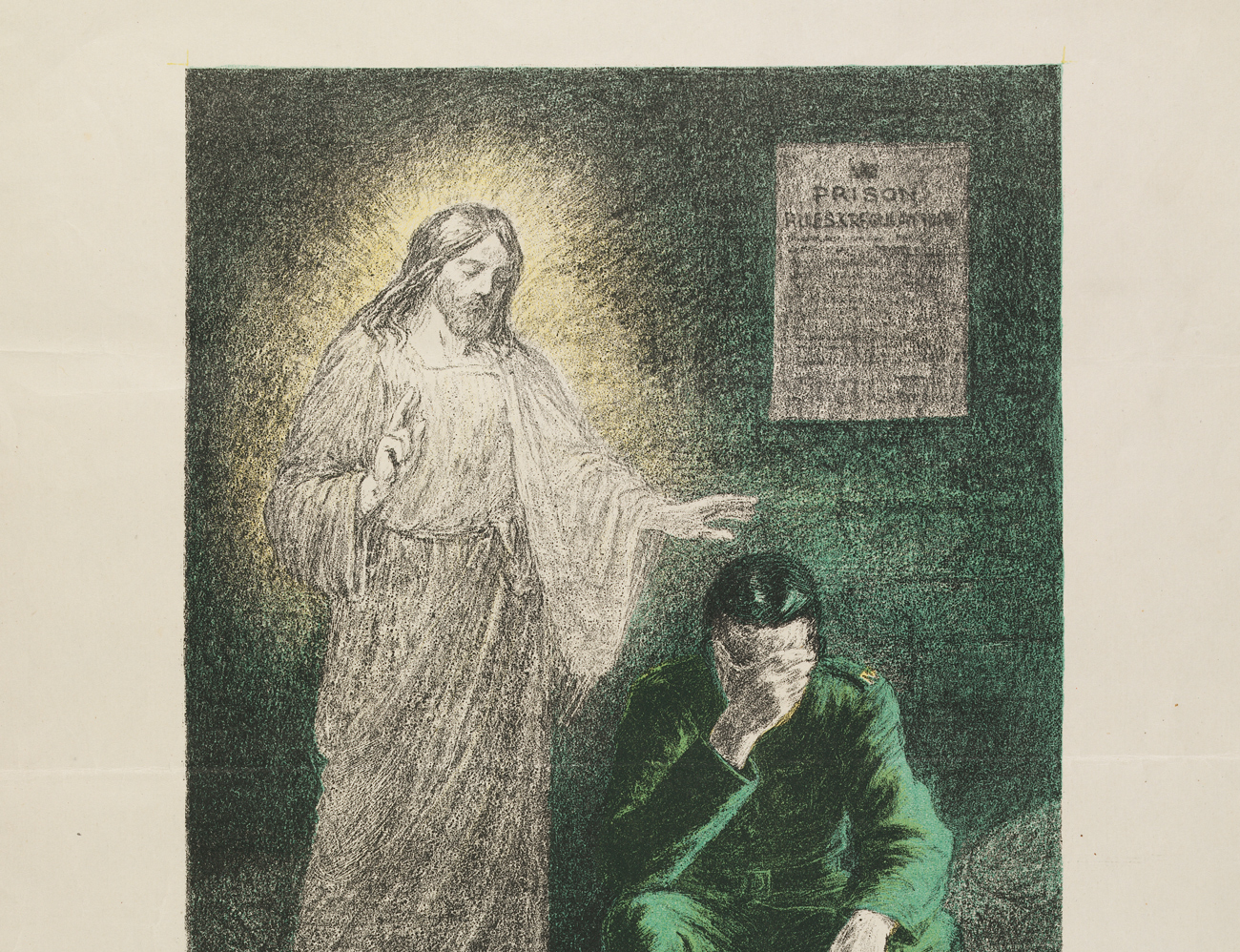Ireland's Religious and Political Evolution
The archival records of the early modern period, which survive in Ireland, are of significance to scholarship in both countries. The Library of Trinity College contains important written records, especially of 17th-century material, across the domains of government, politics, war, rebellion, religion, law, and other aspects of social, economic, and cultural history. Bridging the 17th and 19th centuries, the papers of the great landed estates, including Trinity's own extensive landholding, are represented in a magnificent collection of maps which clarify, as no other documents can, the changing nature of landholding and land use over the centuries. Both in the range of geographical areas covered, and in the variety of cartographers whose work is included, it is a collection unparalleled anywhere in the country.
The modern political collections are of particular importance during this Decade of Centenaries. These collections include the Robinson donation of political cartoons, Samuels collection of subversive ephemera and the papers of Nationalist leaders Michael Davitt, Erskine Childers and John Dillon. The major political, military and revolutionary events that contributed to the foundation of the state such as Home Rule, the Easter Rising of 1916, the War of Independence, the Civil War, and World War I are reflected in these unique manuscripts. Themes such as tradition, modernity, national identity, gender, and class are also represented.
Opening up these collections through cataloguing, conservation and digitisation and will constitute Trinity's contribution to a national programme of commemoration to facilitate access to historical records to enable understanding of significant events in the history of Ireland. It will make a heavyweight contribution to developing discourse about identity, vital during this time where distorted narratives of historical identity are being deployed in modern discourse. Digitisation will allow these materials to contribute to a national conversation on commemoration and to answer necessary questions about the value and purpose of commemoration, and on all the diverse elements which have gone into the making of Ireland and Irish identity. They will also contribute to Trinity, and Ireland's, growing reputation as a leader in International Peace Studies.


